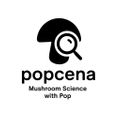🍄 อาหารแห่งอนาคต – โปรตีนจากเห็ดไทย
วันหนึ่ง... เห็ดที่เคยอยู่ในป่า
กลายมาเป็นส่วนผสมในคุกกี้และบราวนี่ของเราได้ยังไง? 🍪
คำตอบอยู่ที่ “แป้งจากเห็ดสายพันธุ์ไทย”
ซึ่งให้โปรตีนสูงกว่า 10 กรัมต่อชิ้น และช่วยลด Carbon Footprint ได้อย่างมีนัยสำคัญ
เห็ดเพาะได้โดยไม่ต้องใช้พื้นที่มาก
ไม่ต้องใช้น้ำมาก
และเป็น “โปรตีนสะอาด” ที่เป็นมิตรต่อสิ่งแวดล้อม
“ใครจะคิดว่า เห็ดที่เคยอยู่ในป่า วันนี้กลายเป็นอาหารแห่งอนาคตบนโต๊ะเราได้”
💚 #Popcena #เห็ดไทย #อาหารยั่งยืน #อาหารแห่งอนาคต #LowCarbonFood
Mushrooms are not only biodiversity treasures — they’re also emerging as the next generation of clean protein sources.
By integrating Thai mushroom powder (up to 50%) into bakery products such as cookies or brownies,
we can boost protein content to >10 g per piece while significantly reducing the Carbon Footprint of food production.
Mushrooms require minimal land and water, are fast-growing,
and their cultivation emits far less CO₂ than animal protein systems.
This positions Thai mushroom biodiversity as a promising foundation for Low-Carbon, High-Value Food Innovation.
> “From forest to fork — Thai mushrooms are powering the clean food revolution.”
#SustainableFood #AlternativeProtein #MushroomInnovation #LowCarbonFood #BCGThailand #Popcena
📚 เอกสารอ้างอิง (References)
1. Rzymski, P., et al. (2022). Mushrooms as a source of sustainable dietary protein. Frontiers in Sustainable Food Systems, 6, 832875.
2. Wasser, S.P. (2020). Medicinal mushrooms as a source of protein and functional bioactive compounds. International Journal of Medicinal Mushrooms, 22(6), 493–501.
3. FAO (2021). The contribution of edible mushrooms to sustainable food systems. Rome: FAO.
4. Jones, M., et al. (2021). Mycelium-based composites: A sustainable alternative in food and materials innovation. Nature Sustainability, 4, 1012–1021.
5. ศูนย์พันธุวิศวกรรมและเทคโนโลยีชีวภาพแห่งชาติ (BIOTEC, NSTDA). (2566). ฐานข้อมูลทรัพยากรเห็ดไทยและการประยุกต์ใช้เพื่ออุตสาหกรรมอาหารฟังก์ชัน
Facebook 😍 https://www.facebook.com/share/p/16ir8yqedD/
- 1
โฆษณา
- ดาวน์โหลดแอปพลิเคชัน
- © 2025 Blockdit


